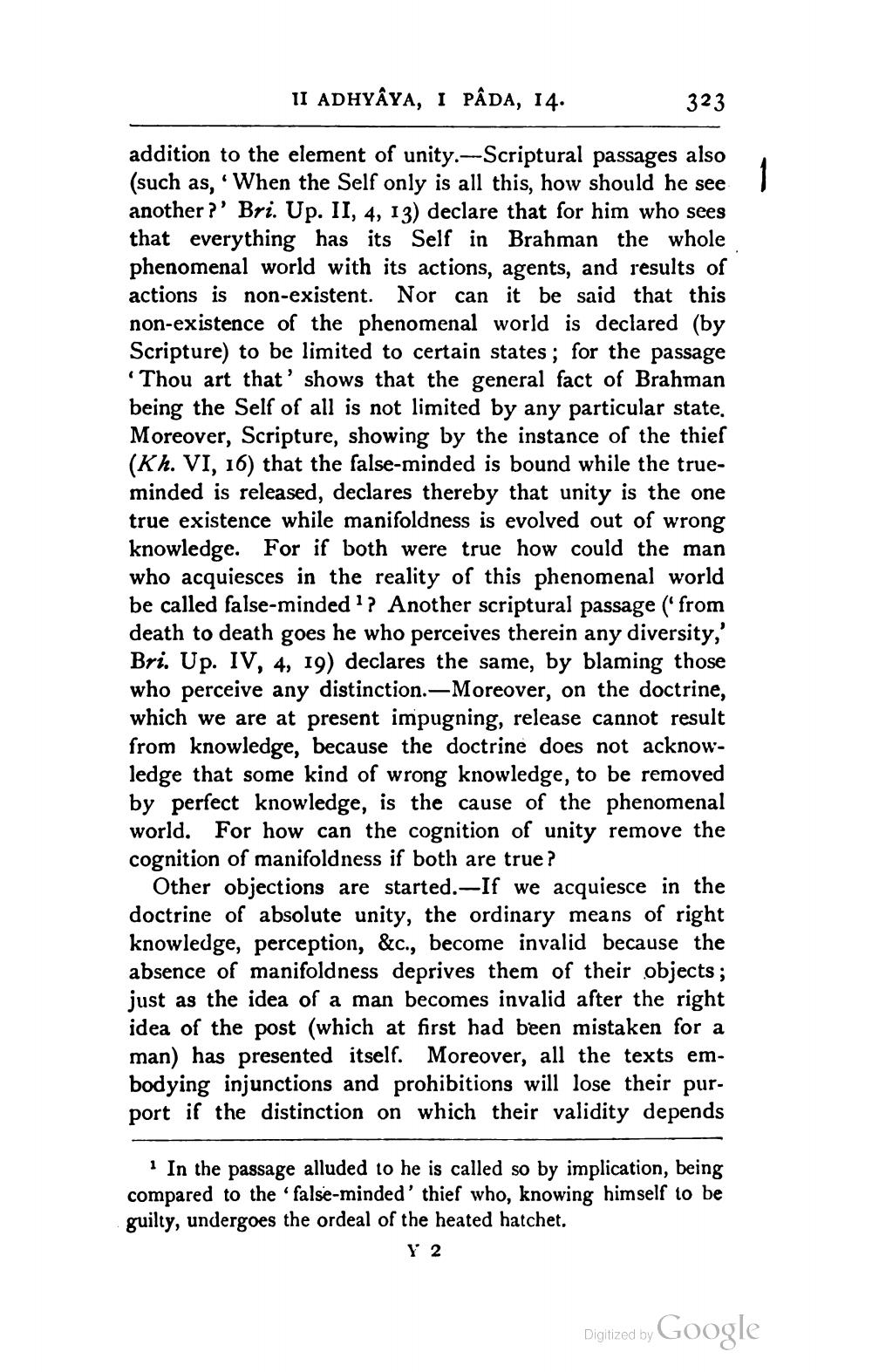________________
II ADHYAYA, I PÂDA, 14.
323
addition to the element of unity.--Scriptural passages also (such as, 'When the Self only is all this, how should he see another?' Bri. Up. II, 4, 13) declare that for him who sees that everything has its Self in Brahman the whole phenomenal world with its actions, agents, and results of actions is non-existent. Nor can it be said that this non-existence of the phenomenal world is declared (by Scripture) to be limited to certain states; for the passage 'Thou art that shows that the general fact of Brahman being the Self of all is not limited by any particular state. Moreover, Scripture, showing by the instance of the thief (Kh. VI, 16) that the false-minded is bound while the trueminded is released, declares thereby that unity is the one true existence while manifoldness is evolved out of wrong knowledge. For if both were true how could the man who acquiesces in the reality of this phenomenal world be called false-minded ?? Another scriptural passage ('from death to death goes he who perceives therein any diversity,' Bri. Up. IV, 4, 19) declares the same, by blaming those who perceive any distinction.—Moreover, on the doctrine, which we are at present impugning, release cannot result from knowledge, because the doctrine does not acknowledge that some kind of wrong knowledge, to be removed by perfect knowledge, is the cause of the phenomenal world. For how can the cognition of unity remove the cognition of manifoldness if both are true ?
Other objections are started. If we acquiesce in the doctrine of absolute unity, the ordinary means of right knowledge, perception, &c., become invalid because the absence of manifoldness deprives them of their objects; just as the idea of a man becomes invalid after the right idea of the post (which at first had been mistaken for a man) has presented itself. Moreover, all the texts embodying injunctions and prohibitions will lose their purport if the distinction on which their validity depends
* In the passage alluded to he is called so by implication, being compared to the false-minded' thief who, knowing himself to be guilty, undergoes the ordeal of the heated hatchet.
Y 2
Digized by Google




